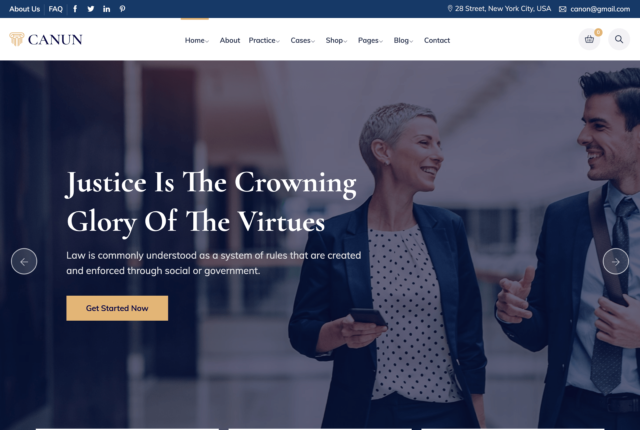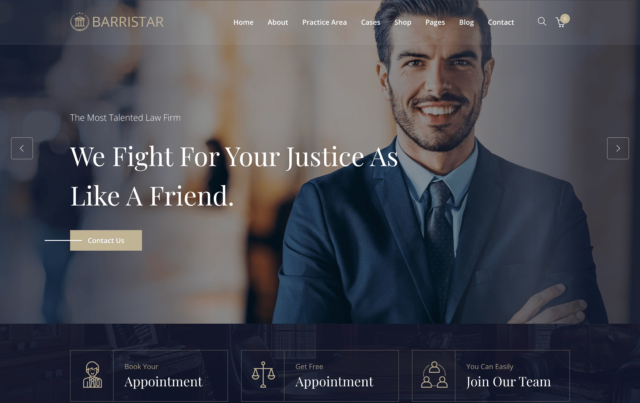In today’s digital-first world, credibility and visibility are essential for law firms looking to stand out in a competitive legal landscape. Digital PR is a powerful tool that helps attorneys build trust, establish authority, and gain media exposure that can significantly impact their online presence.
Unlike traditional PR, digital PR focuses on securing online media coverage, earning high-quality backlinks, and increasing search engine visibility. When attorneys are featured in reputable news outlets or legal websites, it not only enhances their reputation but also improves their SEO rankings and drives high-intent traffic to their website.
This article explores the importance of digital PR for law firms, where attorneys should aim to get featured, and the strategies they can use to secure valuable media coverage.
Why Digital PR Matters for Law Firms
1. Builds Credibility and Trust
When potential clients see an attorney featured in a respected legal publication or news outlet, it reinforces the firm’s authority and expertise. Consumers trust media coverage more than advertisements, making digital PR a highly effective way to gain credibility.
2. Improves Search Engine Rankings
Many digital PR placements come with backlinks to a law firm’s website, which is a strong ranking signal for search engines. Being featured on high-authority sites helps improve a firm’s position in search results, leading to more organic traffic.
3. Increases Brand Awareness
Getting featured in news articles, legal blogs, and industry publications puts an attorney’s name in front of thousands of potential clients who might not have discovered the firm otherwise.
4. Generates High-Quality Leads
Unlike traditional advertising, where firms target broad audiences, digital PR reaches individuals actively seeking legal information. Being featured in relevant articles increases the likelihood of attracting qualified leads.
Where Attorneys Should Get Featured
For digital PR to be effective, law firms need to target high-quality media outlets and legal websites that their audience trusts.
1. Legal Industry Publications
- Law.com – Covers legal news, trends, and insights.
- Above the Law – Commentary on legal developments and law firm culture.
- FindLaw Legal Blogs – Covers various practice areas with attorney-written content.
- Justia Blogs – Provides expert legal commentary.
- Attorney at Law Magazine – Features attorney profiles and legal industry updates.
2. Business and Financial News Outlets
- Forbes – Often features attorneys as expert sources on legal and business topics.
- Business Insider – Covers legal trends, corporate law, and high-profile cases.
- The Wall Street Journal – Valuable for attorneys in corporate, financial, and business law.
3. Local and National News Media
- The New York Times – Covers high-profile legal issues.
- The Washington Post – Frequently features legal experts.
- Local news websites (NBC, ABC, CBS affiliates) – Great for building local authority and visibility.
How to Get Featured in News and Legal Publications
1. Establish Yourself as a Thought Leader
Journalists and editors look for expert sources when covering legal topics. By consistently providing valuable insights, attorneys can become go-to experts for media outlets.
Example: A criminal defense attorney specializing in DUI cases can regularly publish legal analysis on new DUI laws, making them an ideal source for journalists covering legal news.
Action Steps:
- Publish blog posts and whitepapers showcasing legal expertise.
- Speak at industry conferences and local legal events.
- Engage in discussions on LinkedIn and legal forums to demonstrate knowledge.
2. Use HARO (Help a Reporter Out) and Qwoted
HARO (Help a Reporter Out) and Qwoted are platforms where journalists request expert quotes for articles. Attorneys can respond to relevant queries and get featured in top-tier publications.
Example: A family law attorney responds to a HARO request about divorce trends during the holiday season and gets quoted in an article on Business Insider.
Action Steps:
- Sign up for HARO and filter legal-related queries.
- Craft concise, value-driven responses to journalist requests.
- Follow up with additional insights if the journalist shows interest.
3. Pitch Legal Stories to Journalists
Law firms can proactively pitch stories to journalists covering legal news. The key is to offer unique insights or data that make a journalist’s job easier.
Example: A personal injury law firm compiles data on the rise of car accidents due to distracted driving and shares it with a local news station.
Action Steps:
- Identify reporters who cover legal topics and reach out directly.
- Offer a newsworthy angle, such as emerging trends or expert legal analysis.
- Provide exclusive insights that reporters can’t find elsewhere.
4. Leverage Social Media for Media Outreach
Journalists frequently use Twitter and LinkedIn to find expert sources. Attorneys who engage with reporters on social media have a better chance of getting featured.
Example: A cybersecurity attorney shares insights on LinkedIn about new data privacy regulations, catching the attention of a Forbes journalist writing about the topic.
Action Steps:
- Follow and engage with journalists covering legal topics.
- Share timely legal updates that reporters might find useful.
- Directly message journalists with relevant story ideas.
5. Get Involved in High-Profile Legal Cases
Attorneys who handle cases that attract media attention have a natural opportunity for PR exposure.
Example: A civil rights attorney representing a client in a landmark discrimination case gets featured in The Washington Post.
Action Steps:
- If involved in a major case, proactively engage with reporters covering the legal proceedings.
- Provide press releases with case updates.
- Offer legal analysis on how the case impacts broader legal precedents.
6. Partner with a Digital PR Agency
Working with a legal marketing agency like Potenture Media Group ensures that law firms get strategic PR placements without managing outreach themselves.
Agency Benefits:
- Access to media contacts in legal and business publications.
- Professional PR writing for press releases and pitches.
- SEO-driven PR strategy to increase website traffic and domain authority.
- Ability to safely and effectively build backlinks to your law firm website
Our Final Thoughts
Digital PR is one of the most effective ways for law firms to gain credibility, attract clients, and improve SEO rankings. By getting featured in respected legal publications, national news media, and high-authority business outlets, attorneys can position themselves as experts and build long-term trust with their audience.
Law firms that leverage HARO, journalist outreach, social media engagement, and PR agencies will gain a competitive edge, ensuring their name appears in high-visibility media coverage.
For law firms looking to expand their authority and brand presence, investing in digital PR is a game-changing strategy that delivers measurable results.








